Becoming a self-employed plumber has many benefits. Starting your own plumbing business, calling all the shots, and being the boss are all very great aspirations for any plumber with an entrepreneurial urge.
If you are reading this post for the first time, you have probably been figuring out how to start your plumbing business for a while but haven’t yet made up your mind. Or, you may have been working for another plumbing contractor and feel that it’s time to become your own boss.
The plumbing industry is growing rapidly, and there is a high demand for licensed and experienced plumbers in the US is high, according to the Bureau of Labor Statistics. With the current plumbing industry pegged at $124 billion (and constantly growing everyday), there has never been a great time to start a plumbing business than now. Furthermore, many plumbing business owners currently in the field are attaining retirement age, leaving great opportunities for more plumbers to break into this lucrative industry.
For many home service contractors like roofers or plumbers, the prospect of starting their own companies provides a way out of the grind, offering great freedom and income than working for a private plumbing company.
We have you covered if you are among the many experienced and licensed plumbers who want to know how to start a plumbing business. But launching a successful business will take more than your plumbing know-how and experience. Read on to learn everything you require to know from registering your business, general advice, and marketing tips to managing your cash flow.
Without further ado, let us dive into our post!
Benefits of Starting a Plumbing Business
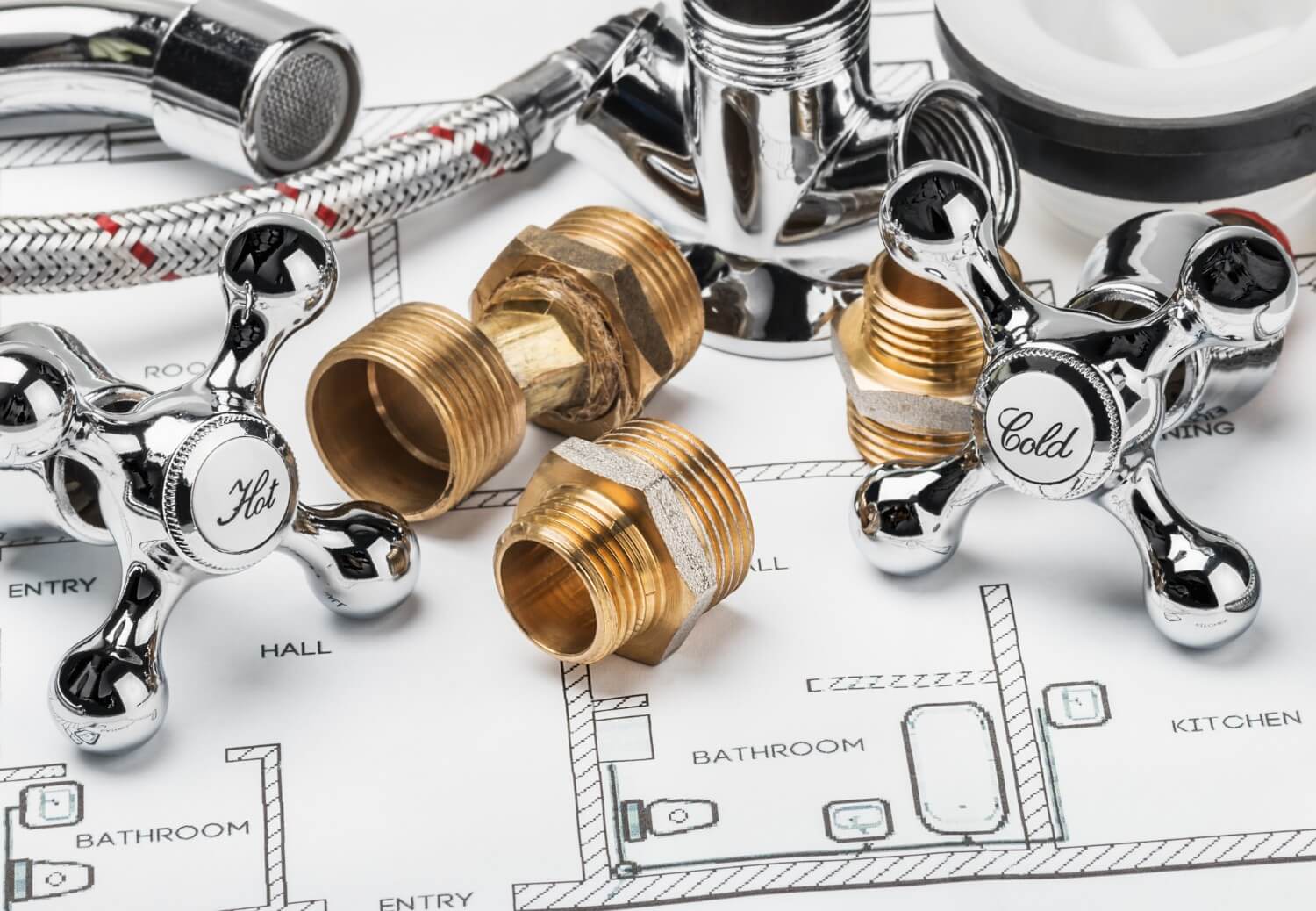
Working for other plumbing contractors can sometimes get exhausting, particularly if there’s little room for growth. If you are not making ends meet despite getting burnt out from working overtime for a company, starting your own plumbing company may be the solution.
While creating a new plumbing business from the ground up can feel overwhelming initially, there are multiple benefits to charting your own path in the plumbing industry that make the challenge worth your time and effort. Here are some of the advantages that you can enjoy when you decide to start your plumbing business.
Great Earning Potential

One of the major benefits of starting your own plumbing business is the possibility of higher income potential. As a self-employed plumber, you will have full control of your business’s revenues. This implies that you can go out and book as much work as necessary to raise the higher income as possible without being restricted to jobs that your former boss would assign. It also means that you have full control of how much you charge for every job and how income is to be split between new supplies, paychecks, and other important costs.
The average salary for self-employed plumbers in the US is approximately $38 per hour or just under $80,000 annually. Although these salary scales vary from one state to another, experienced and established plumbers who start a plumbing company stand to earn more than those who work as employees. If you plan to do a fair share of work on your own, you will have fewer labor expenses, benefits, and insurance to distribute as well, offering you even a greater share of the income.
Independent Work Schedule
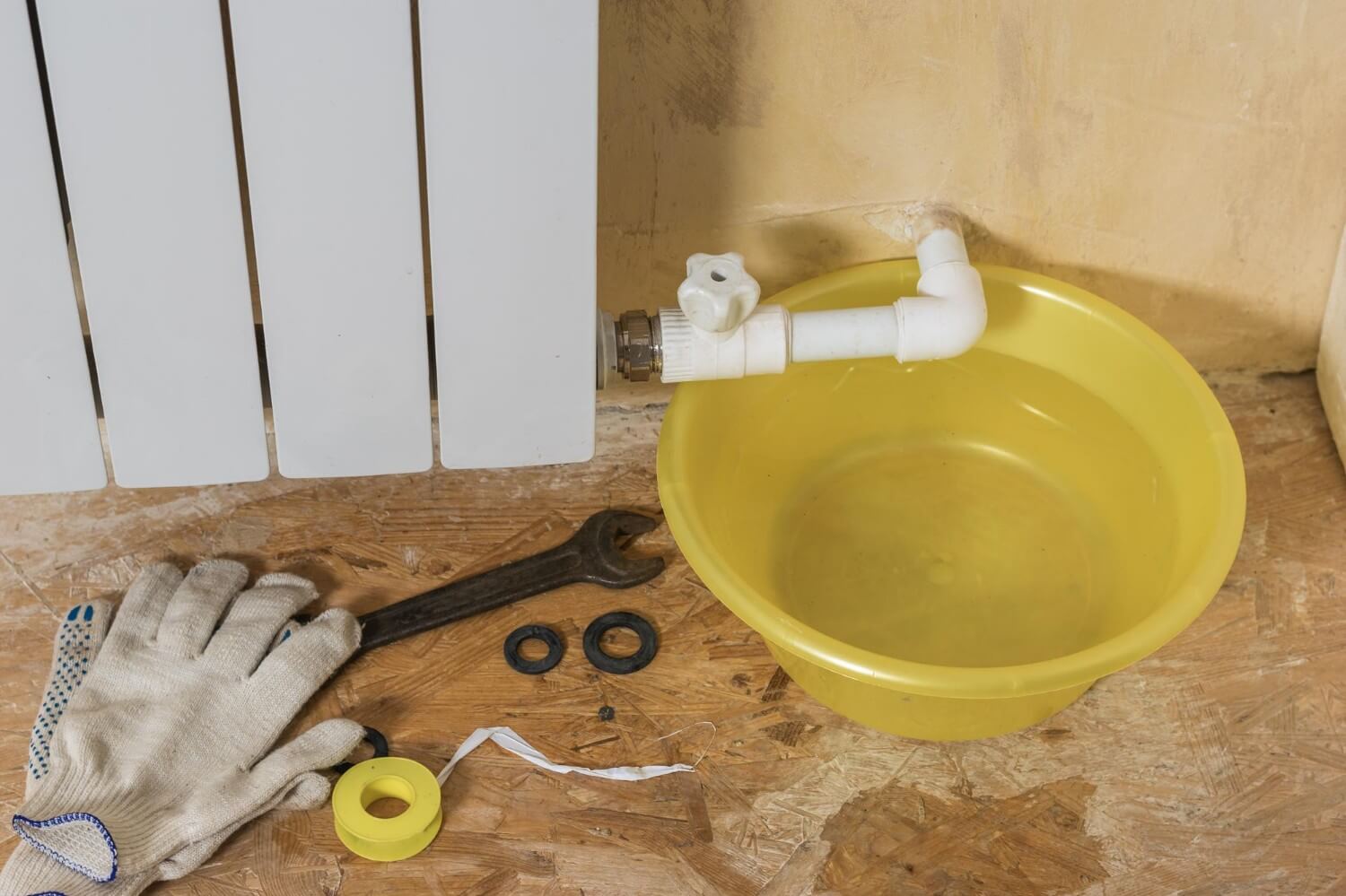
A good reason to start a plumbing business is the independent job schedule that comes with it. When you start a plumbing company, you have full control over who your customers are and when you partner with them. Self-employed plumbers are only bound by the plumbing projects they have already accepted. This flexibility helps you to select and pick the jobs you want to book instead of just responding to work orders offered by the dispatcher.
If you want to schedule residential plumbing jobs, you can concentrate on partnering with homeowners or property managers in your service area or create a strong customer base among households in nearby communities. When it comes to contractual work and plumbing repair jobs, you need to complete jobs in a timely manner as part of superior customer service. But, when scheduling future jobs, you have full flexibility when it comes to selecting the hours and days that you will work.
Room for Growth
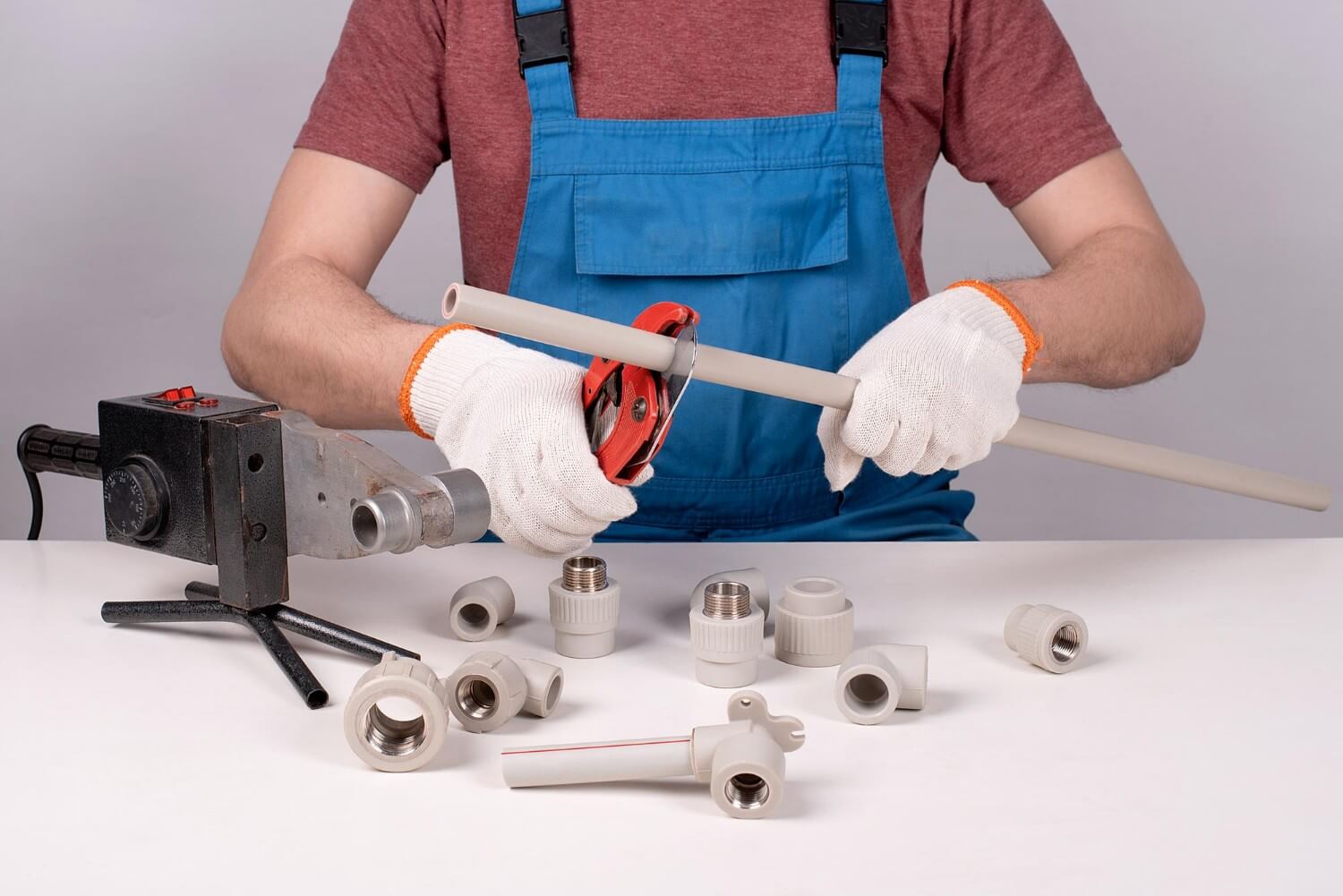
The scarcity of skilled tradespersons, including plumbing contractors, continues to increase the demand for plumbers across the U.S, particularly in the current market. According to the Bureau of Labor Statistics, there has been a major shortage of licensed and experienced plumbers across the US. With demand for skilled and licensed plumbers exceeding supply, you have an opportunity to bargain for higher pay, particularly for those starting their own plumbing business.
Customer Interaction
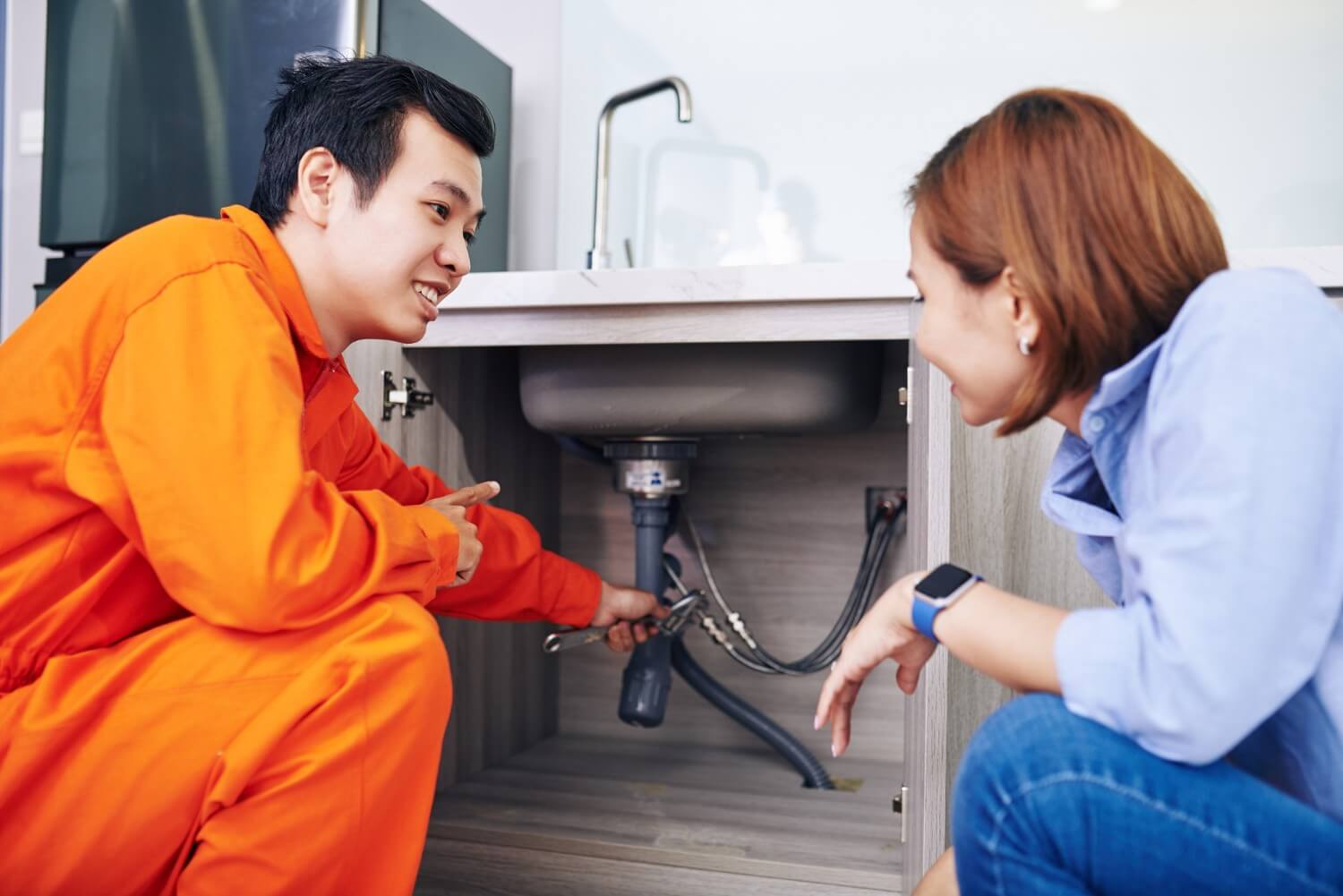
A self-employed plumber is typically able to meet with every client individually. Whether these customers are homeowners that require a pipe to be repaired or general contractors who would like to start a new project, a self-employed plumber will accurately represent his business and offer appropriate customer service for the situation at hand. This can translate to higher earnings through client loyalty and excellent services.
Choose a Specialty You Enjoy
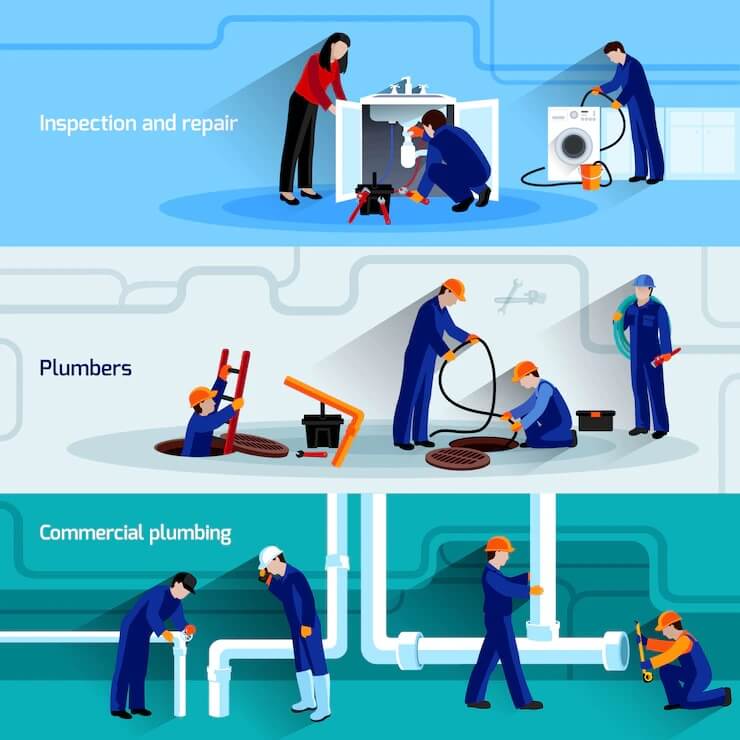
Starting your plumbing business helps you to handpick jobs that you have specialized in –such as steam fitting, installing sprinkler systems, or pipe fitting. Becoming an expert on a specific type of plumbing work will set you apart from the competition and potentially earn a higher revenue in the process. Finding a high-value niche within the plumbing industry can also lead to huge contracts with large companies that wish to outsource the very best to meet their specific plumbing needs.
Starting a reputable plumbing business involves a lot of things more than knowing how to repair or install pipes. A successful plumbing company needs patience, knowledge, people management skills, and perseverance, among other traits. In this post, we will discuss the whole process of how to start a plumbing business. So, wear your entrepreneurial hat, and let’s dive in!
How much Money Do You Need to Start a Plumbing Services Business?
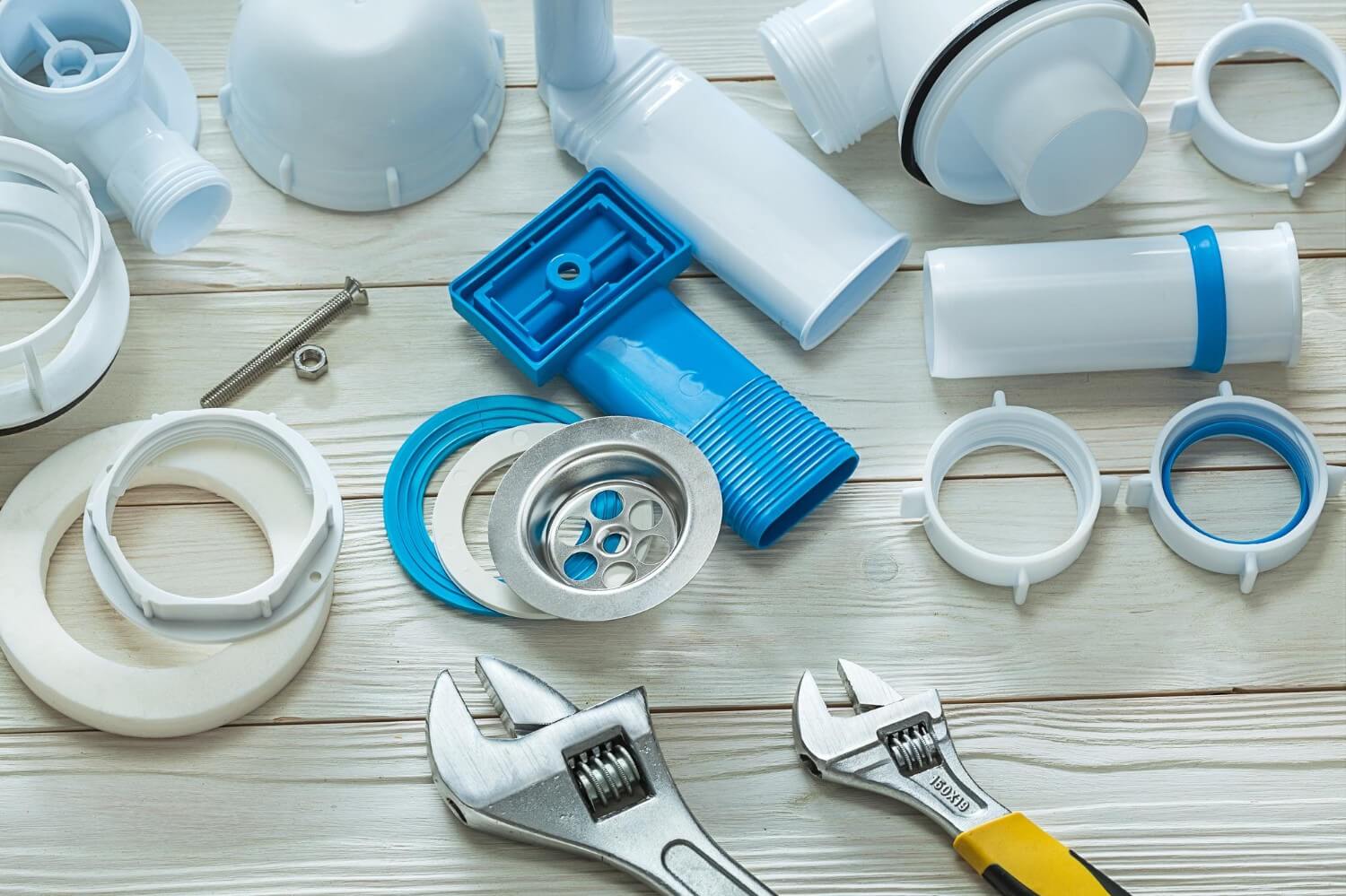
Are you wondering about the amount of money you require in order to start a plumbing business? Well, there are a lot of factors that are involved to help you determine the actual cost of starting a plumbing company. Some of the startup expenses may include staff uniforms, business registration requirements like licenses and insurance, vans, and trucks amongst others. Furthermore, you will need set money aside for website setup, marketing, and advertising expenses. But if you want to start a plumbing company with no money will no doubt cost you everything that you treasure.
Is Starting a Plumbing Business Hard?
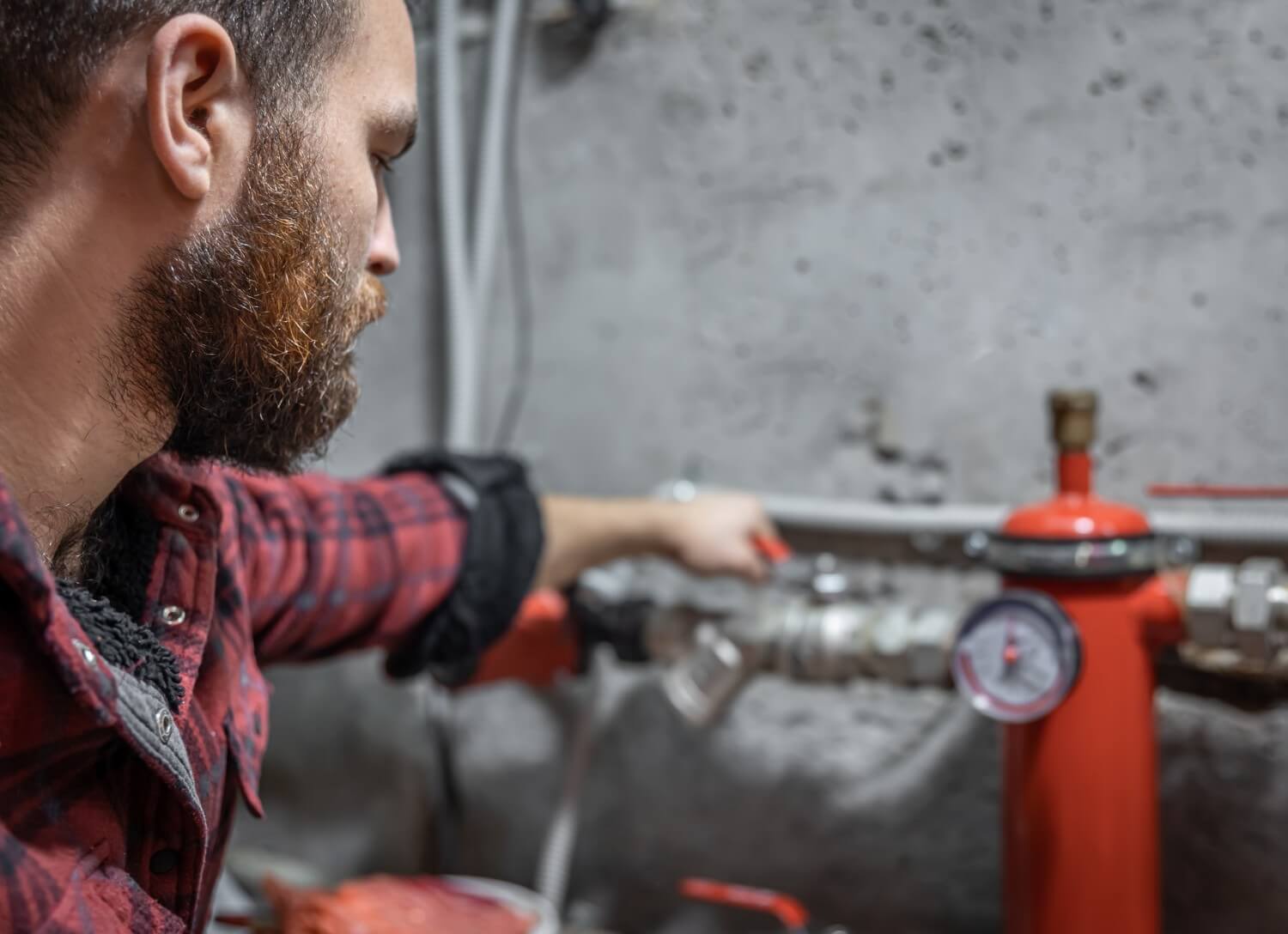
Starting a new plumbing business is not easy as there are other established plumbers already operating in this field. Furthermore, you will be competing with the same clients, and your small plumbing business will have to aggressively advertise or market its services. But there are many other important aspects that you need to figure out when making a solid dive into starting a plumbing business.
12 Steps to Starting a Plumbing Business From Scratch
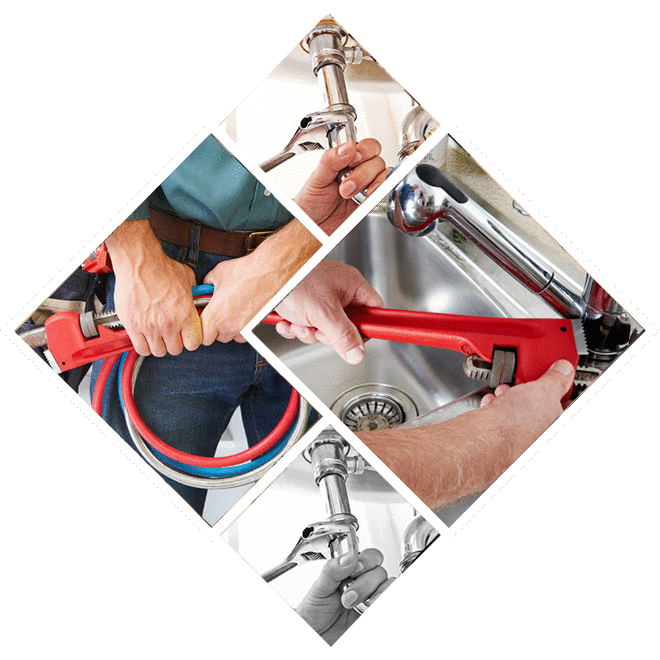
As earlier stated, there is more to starting a plumbing business than just registering it with the state. Launching a successful plumbing business takes energy, commitment, and time. While it may seem challenging at first, the process becomes much simpler to navigate once you understand the basics. If you are still on the fence about how to start a plumbing business but don’t know where to start, our simple eleven-step guide will help you get started!
1. To Start a Plumbing Company, Save Money

Just like any other investment, to start a plumbing business, you will require money to fund your dream project. Your savings should be sufficient to support your unique business requirements, and it should include your working capital which will depend on your business model and needs. As a beginner, most plumbing contractors recommend a slow growth rate initially. In this case, you should aim to recover the initial cost of machinery before purchasing more.
2. Define your Plumbing Business Before You Start
a) Select a Name for Your Plumbing Business
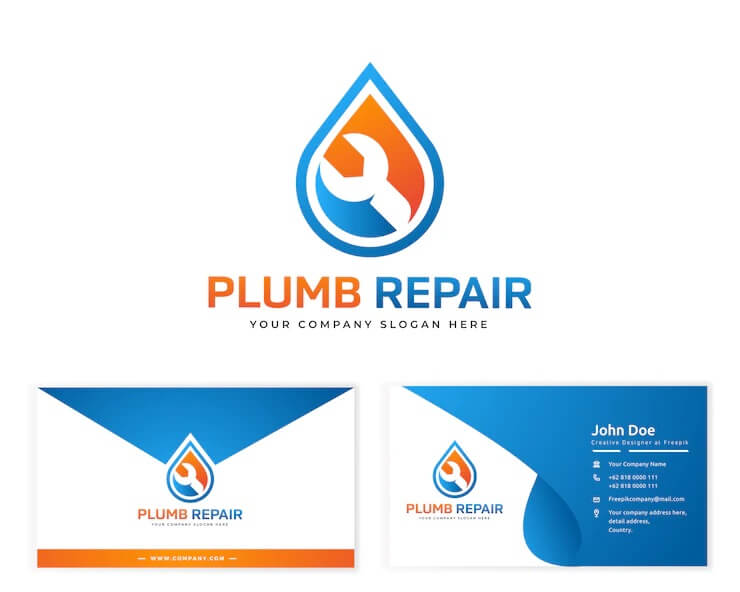
The initial step to starting a plumbing company is to select your business’s name.
This is a very crucial decision because your business name is your brand and will last for the lifespan of your company. Ideally, you should pick a name that is memorable and meaningful. Here are our top tips for selecting a name for your plumbing business:
- Keep it simple. The best plumbing business names are normally easy to spell, pronounce and remember.
- Ensure that it’s available. Check your preferred name against trademark databases and a list of the registered business name to see if it’s available.
- Think about marketing. Choose a plumbing business name that reflects the focus of your company or desired brand.
b) Choose What Plumbing Services You Will Provide
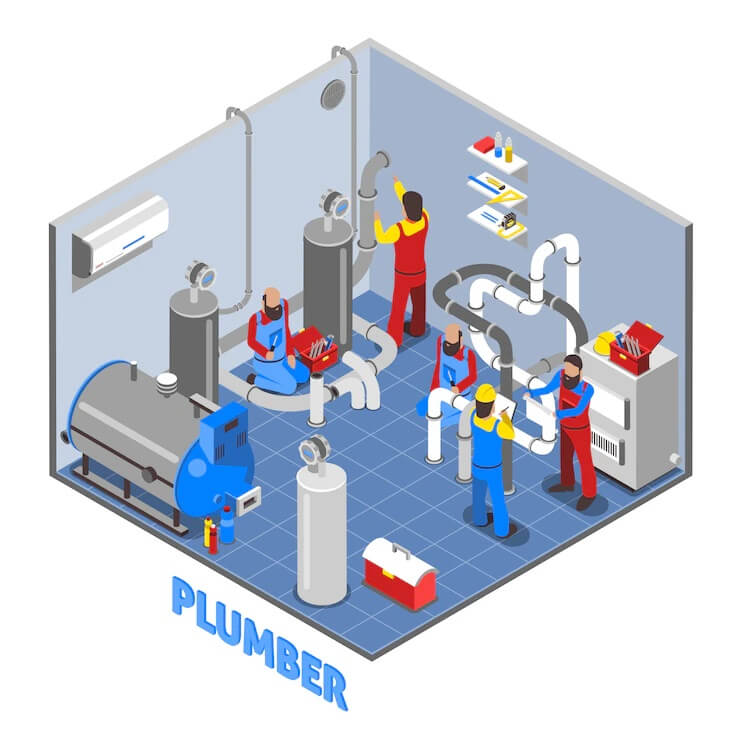
Choosing to focus on a specialty with the plumbing niche will make your plumbing company stand out from other plumbers in your region. This will not only bring repeat clients but also tons of referrals. Niches in the plumbing business include:
- Plumbing repair, installation, or both: Your plumbing company can also provide loads of installation and repair services. These can include clogged drains, leakages, installation of pipes, and repair of flooded basements.
- Commercial or residential plumbing: You may opt to specialize in providing residential or commercial m plumbing services.
- Emergency plumbing
- Backflow testing and repair
c) Understand Your Ideal Target Market

Knowing your ideal target clients can assist you to define your policies to suit their interests and preferences. For instance, because you are starting a plumbing business, your potential clients would include homeowners and business owners in the area where your plumbing business is situated.
3. Create a Plumbing Business Plan

A business plan is synonymous with a plumbing diagram for your company’s sales strategy. It describes the routes to your business success and how elements like cash flow and marketing can contribute to a healthy plan. A plumbing business plan can help to persuade suppliers, plumbers, and lenders to support your company.
A good plumbing business plan should include the following:

- Executive summary – This section should summarize your whole business plan so readers can instantly understand the main details of your plumbing business.
- Company overview – This section tells the reader about the history of your plumbing business and what kind of services you offer.
- Industry Analysis – Here you will point out the key details about the plumbing business. Perform marketing research and document how large the plumbing industry is and what trends are influencing it.
- Customer Analysis – Here you will document who your ideal or target market is plus their demographics.
- Financial projections
- Marketing strategies
- Growth opportunities
- Long-term/short-term goals
- Financing options
A clear plumbing business plan is important for success as a plumber, and it will assist you to map out the specifics of your company and discover the unknowns.
4. Form a Legal Entity: Select a Plumbing Business Structure, Register Your Company and Obtain Appropriate Licenses

The most common plumbing business types are sole proprietorship, limited liability company (LLC), partnership, and corporation.
Starting a plumbing business such as a corporation or LLC safeguards you from being personally responsible if your plumbing company is sued.
You will need to have a plumbing company legally set up before you begin taking on your initial customers.
Use our checklist below to get started:
Select Your Legal Business Structure

Choose between a sole proprietorship, partnership, or limited liability company. Choosing a great legal entity will assist you to maximize your operational success and financial opportunities. The main kinds of legal business structures include:
- Sole Proprietorship: In this type of structure, you run your own plumbing business without a specific structure. Your personal liabilities, business, or assets are not separated.
- LLC (Highly recommended): This plumbing business structure will safeguard your assets from your plumbing business liabilities. All the losses and profits in this kind of entity are typically taxed as loss or income loss to the plumbing business owner. This is the most preferred legal structure for a plumbing business.
- S-Corp: These corporations are also preferred, but they have a limit on the maximum number of members. S-Corps offer small plumbing businesses a tax benefit by getting waivers on Corporate taxes.
Register Your Plumbing Business Name

If you want to start a plumbing business in the US, perform a quick search to ensure that no other plumber is using your plumbing company name, and then register your business name with the local state authorities.
Register Your Plumbing Business with IRS

Next, you require to register your plumbing business with Internal Revenue Service (IRS) which will prompt the IRS to offer you an Employer Identification Number (EIN).
Most banks will require you to have an EIN so that you can open an account with them. Furthermore, to hire technicians, you will need an EIN because it helps the IRS to track your Payroll tax payments.
But if you are a self-employed plumber without employees, you don’t need to have an EIN. Instead, you would use your Social Security Number(SSN) as your taxpayer identification number.
Open a Plumbing Business Bank Account
It is crucial to open a bank account in your plumbing business name. This is the initial step towards legitimizing your plumbing company idea. A bank account in your plumbing business name will assist you when filing taxes. It will also help you in tracking down your expenses, managing salaries, receiving or deposit payments, and planning your plumbing business budget more accurately. Here are some crucial things that you need to do after opening a bank account for your plumbing business:
- Get a business credit card: This will help you separate business from personal expenses.
- Obtain checks: Most clients still prefer to write checks, and that’s why you should write checks. You may also realize the need for accepting client checks instead of the bustle and hustles of processing credit card payments.
- A credit line (possibly): A credit line can be likened to a financial safety net, and it helps you have extra funds whenever you require them. You won’t require to finish cumbersome applications or vet potential lenders to obtain extra funds.
Get the Right Insurance

From the first day you start your plumbing business, you expose yourself to various risks. Your plumbing business is at risk even before beginning your first project. That’s why your plumbing company requires appropriate insurance. One lawsuit could threaten to close your business even before it starts. There are different kinds of insurance you will require to start a plumbing business. The most common plumbing company insurances include:
1. Professional liability insurance – This is also known as omissions and errors insurance; this will assist to pay for the expenses of a lawsuit over a plumbing defect. Professional liability insurance is appropriate for your plumbing business since your niche involves interacting with clients and recommending specific plumbing products and services. It safeguards your plumbing business from the cost of lawsuits if your advice or recommendations results in a loss to your client.
2. General Liability Insurance – This insurance is strongly recommended for plumbing business owners. It covers everything from customer injuries, client property damages, and other related lawsuits that may arise. If your plumbing business is sued as a result of property damage or injury, you may be required to pay a lump sum amount in terms of compensation. General liability insurance will assist you to cover this kind of eventuality.
3. Workers Compensation – Most states require plumbing contractors and businesses-even without employees –to have workers’ compensation insurance to cater for the cost of injured employees and medical expenses and compensate them for lost wages.
4. Commercial auto insurance – if your plumbing business is using vehicles to ferry equipment and employees to and fro job sites, you will require vehicle insurance to cover any damages in case of an accident.
5. Umbrella Insurance – While general liability insurance caters for most claims, you may obtain accidents or lawsuits that may be so tragic that they can threaten to deplete your primary cover. In this case, the umbrella insurance will protect you from paying out-of-pocket fees to cater for damages that exceed your primary policy.
Pro tip: Find an insurance broker, tell them about your plumbing business and its unique requirements, and they will recommend policies and prices that match those needs.
Apply for the Required Permits and Licenses
In order to start a plumbing business, you will be required to obtain the necessary licenses and permits. The requirements for licensing vary from state to state. Permits and licenses help you operate a legal plumbing business. You can get plumbing business from your town hall or city. A plumbing company may require the following permits and licenses:
A General Plumbing Business License: A general plumber license helps you to hire subcontractors and get respect among prospects and fellow workers. But, getting a state plumbing license is a cumbersome and involving process, which requires you to meet particular qualifications along the way.
Local plumbing business permit: You can get a local plumbing business permit from your town or city hall. The government may be needed to do zoning, planning, and safety inspection approvals before offering you the permit.
Hire an Accounting Firm and Bookkeeper
Bookkeeping will assist you to keep accurate financial records. Moreover, the law stipulates also plumbing companies maintain accurate books and records.
Do try to do accounting or bookkeeping on your own unless you are professionally trained and experienced in this field. Trying to micromanage everything on your own will make you lose focus and grit, which can affect the growth of your plumbing business. Hiring a professional accountant and bookkeeper will assist you to avoid these errors.
5. Establish Your Pricing

After you have completed your research on the demand for plumbing services in your area, it’s time to set your pricing. Yes, you will want to provide competitive pricing to attract new clients, but you should consider your overhead and pay your bills.
Come up with a budget that includes all your expenses such as labor, insurance, materials, marketing, rent, and other recurring, outgoing costs. Once you have an overview of your yearly and monthly overheads, you will have a clear grasp of pricing and the number of customers you will require to maintain a consistent cash flow.
6. When You Start a Plumbing Business, you will require to Nurture/Form Relationships

When starting a plumbing business, it is important that you form and nurture relationships with suppliers, employees, and subcontractors. Establishing your plumbing business as a credible entity is crucial to helping you dominate your local service area.
Outsource or Hire the Plumbing Work

Outsourcing some plumbing jobs can ease the stress and time constraints that may be caused by working alone. Although you may prefer these services yourself, outsourcing some tasks to plumbers that specialize in a specific aspect of your plumbing business will offer relief, especially when working on fixed timelines.
Hire Professionals
Professionals succeed because they have diverse suggestions or ideas of how best to attain desired results on a particular project. When starting a plumbing company, you should leverage this diversity and hire professionals to bring fresh perspectives and unique ideas to your plumbing business. True professionals will actually save you money by offering expert opinions on matters.
7. Acquire the Right Plumbing Tools, Equipment, and Financing
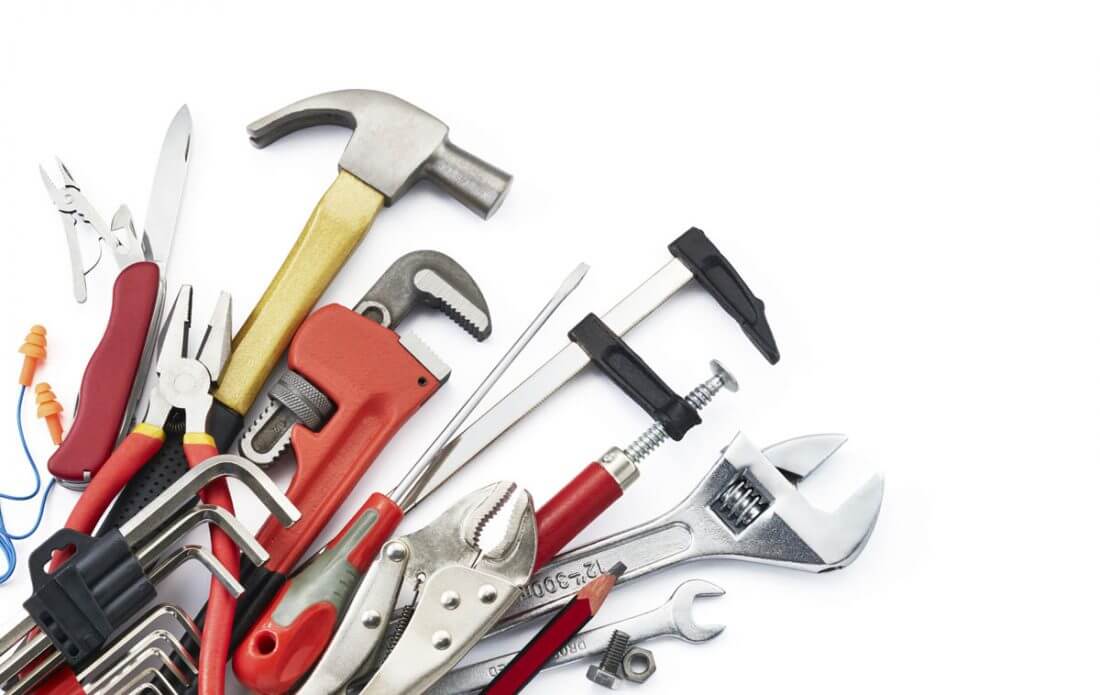
With your plumbing business plan ready, it’s time to start seeking financial aid from venture capital firms, banks, and other sources of funds. Schedule meetings with financial or credit managers and table your business plan for consideration. Make sure that you open a checking account beforehand to make sure that your company income and private assets remain separate entirely. By so doing, you will give your plumbing business more credibility and safeguard you from potential liabilities in the future.
Once you identify an interested partner to invest in your new plumbing business, you can figure out the best way how you will utilize the funds. Buying a few important plumbing tools and equipment will save you from going to the hardware store for each job service.
But don’t risk all your working capital into buying new shiny plumbing equipment. Begin with the fundamentals, purchased used if you can, and only buy or rent equipment for specialized jobs if you have the skills, license, and customer demand.
Here are some inventory, safety equipment, and tools that you will need to keep in your toolbox.
Inventory and Supplies
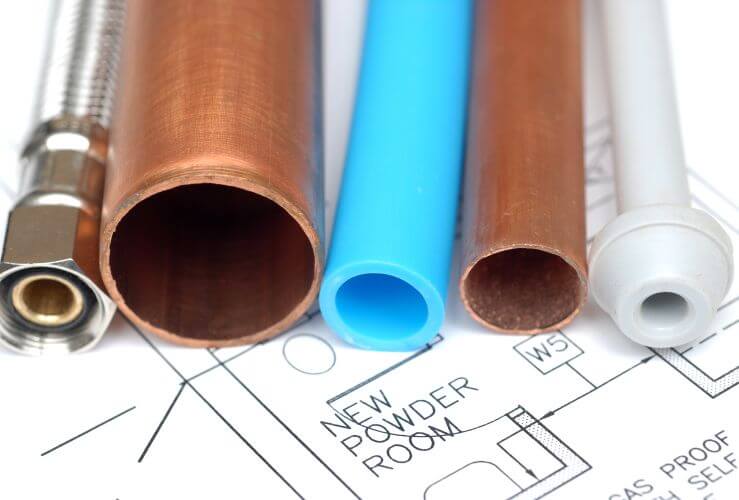
- Inlet valves
- Pipes (both copper and plastic)
- Fittings
- Thermostats
- Elements
Safety Equipment
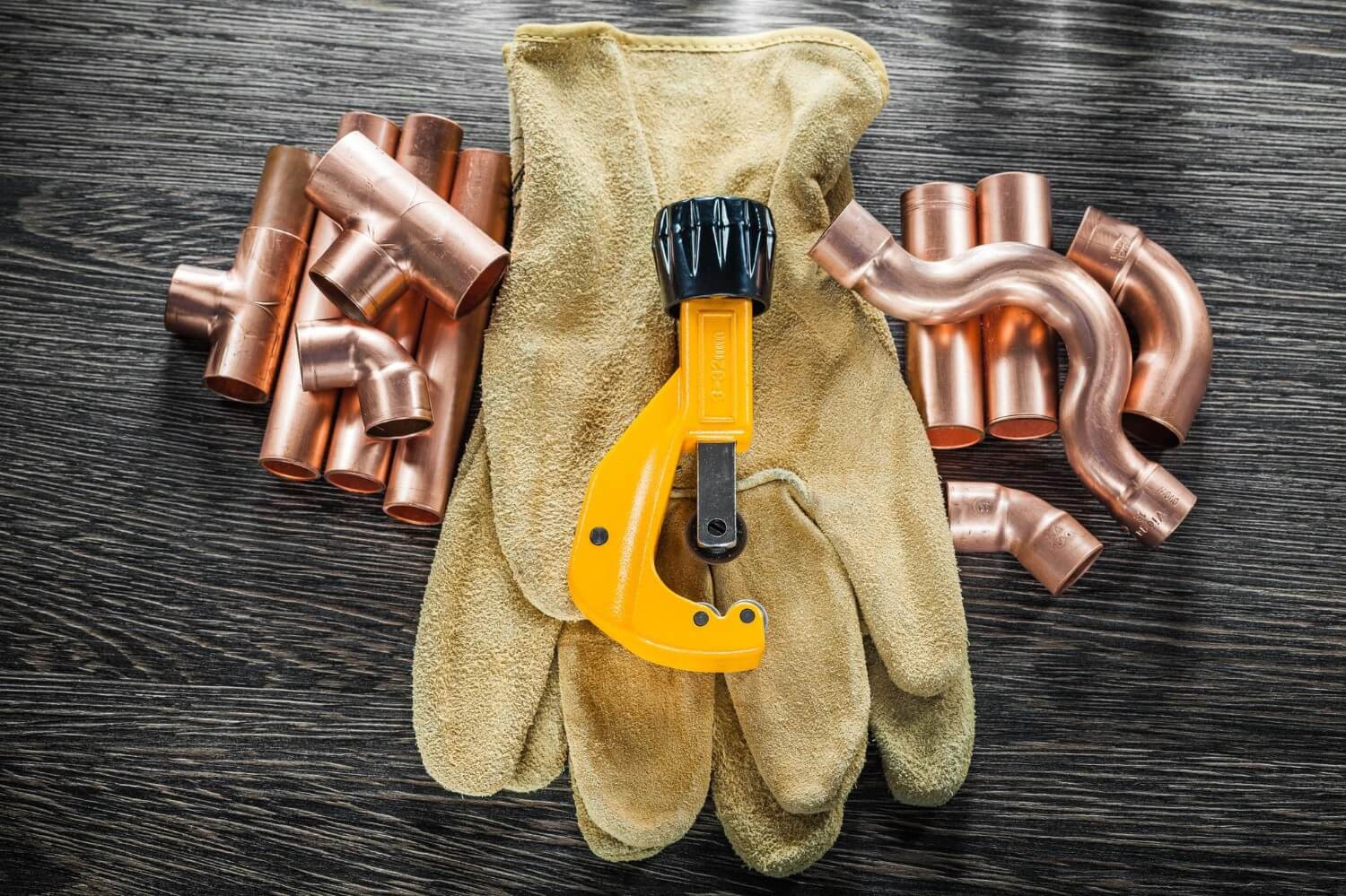
- Heat shields
- Plumbing gloves
- Knee pads
- Safety goggles
Plumbing tools
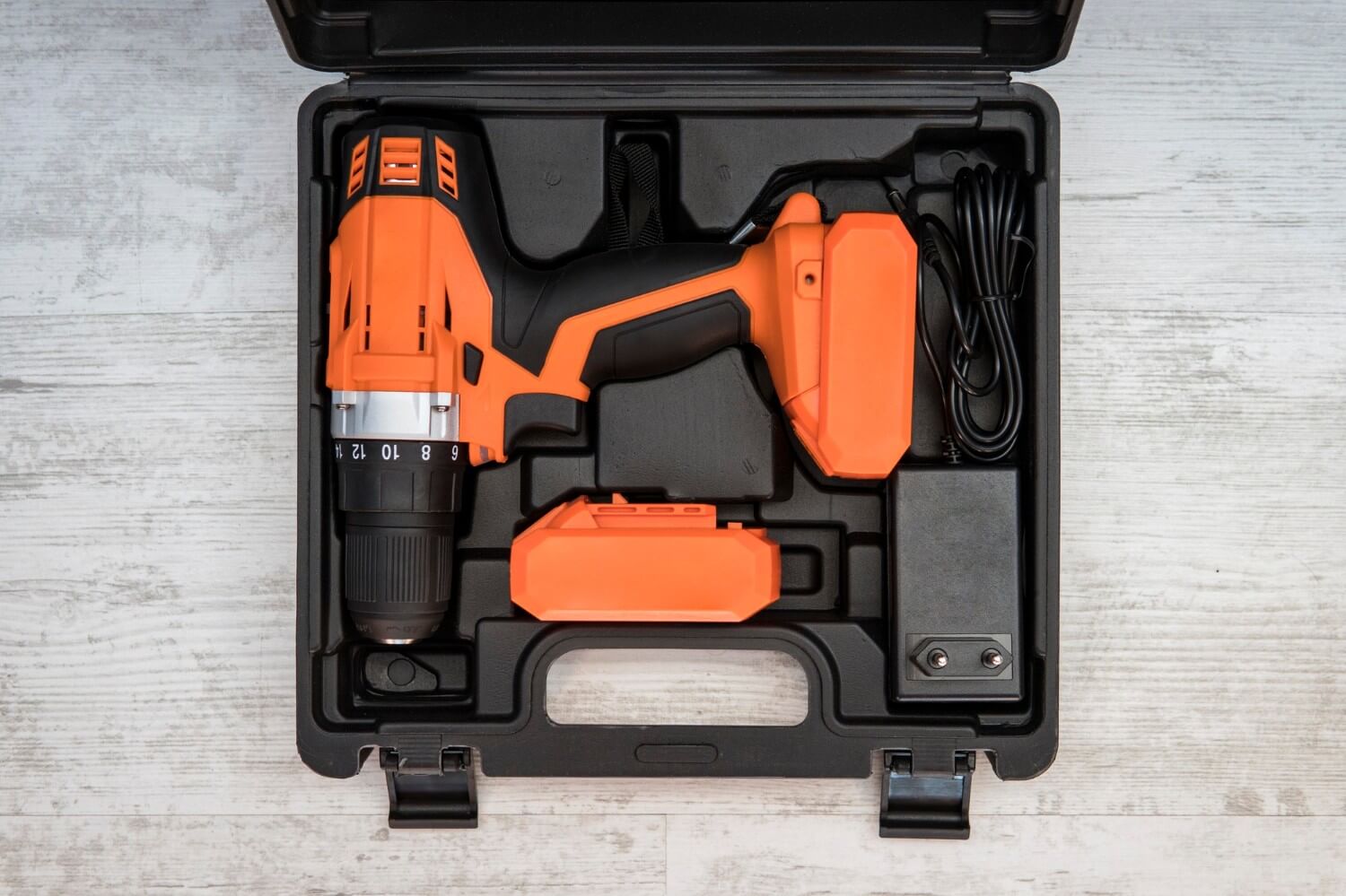
- Pipe cutters
- Grips
- Hacksaws
- Hand tool set
- Cordless battery toolset
Besides, you may also want to purchase a reliable van or truck strictly for your plumbing business purposes.
8. Market Your Plumbing Business Locally
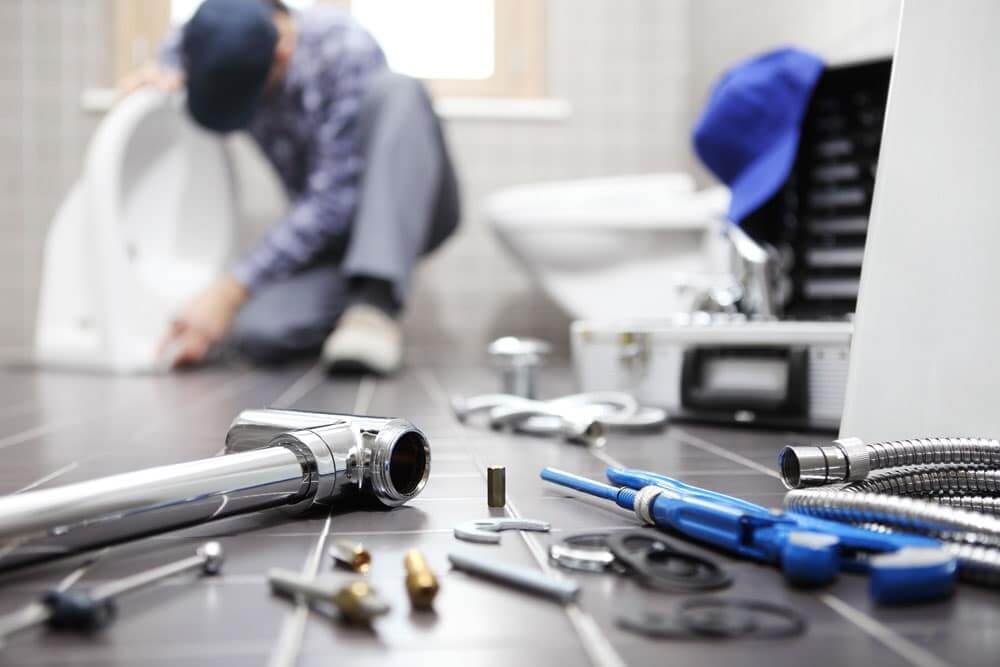
Once everything is set, it’s now time to market your small plumbing business and generate qualified leads. By now, you have identified who your ideal client is, and you just require to be strategic to get in front of them.
Spending time on digital marketing strategies is a necessity that few plumbing businesses can afford to ignore today. You don’t have to spend a lot of money on marketing or advertising agencies, especially when starting out a plumbing business. Instead, try to focus on simple plumbing marketing strategies to generate exclusive leads for your business.
Define Your Brand
Creating a strong brand helps to differentiate your plumbing business from the competition. It is a representation of what your plumbing company stands for, goals, and values for business and client success. Depending on the type of plumbing business you want to start, defining and developing your brand involves the following steps:
Create a Good Plumbing Logo
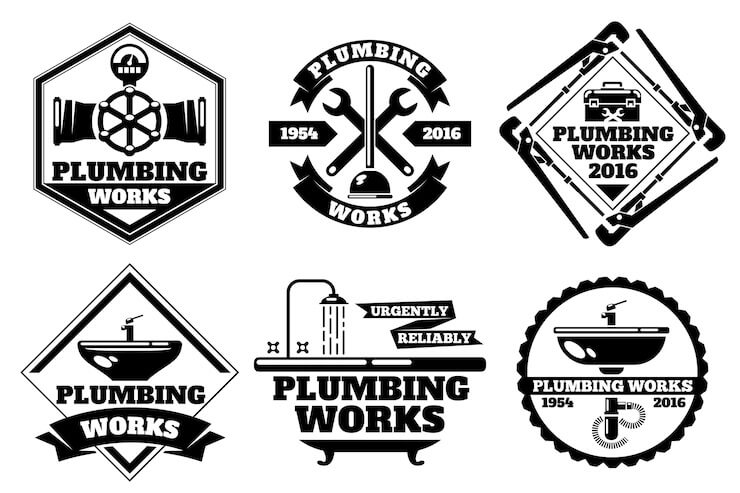
Your plumbing logo is one of your best marketing materials since it is what prospects or clients see when they think about your business. It can represent value for money, reliability, and quality. Your company logo is essential because it will be plastered across all advertising mediums or formats. It often represents your first impression to prospects or clients, so make it count! To make it happen, you can choose to hire a professional logo design agency with a large portfolio of successful designs.
Market and Promote Your Brand

Now that you have established your brand, it’s time to market or promote it. Outrank your competitors by assisting people to remember your brand while also showcasing professionalism.
Informational/ Promotional Posts can be an effective way of drumming up support for your plumbing business and getting your brand name out there. Printing high-quality fliers and brochures describing your plumbing services and distributing them to local plumbing businesses is a great method for improving local brand awareness.
Professional and well-designed business cards are a tried and proven way of building brand awareness for any plumbing business owner. The good thing with business cards is that they are easy to carry because you never can tell when a marketing opportunity can present itself. A savvy plumber is always on the lookout for a new source of prospects or clients.
Email Marketing is an easy yet effective way to offer a huge ROI on a small budget. It provides a great way of putting your plumbing business in front of thousands of prospects at once or promoting a new plumbing service or offer.
9. Establish a Vibrant Online Presence Before You Start a Plumbing Business

Since most of your clients will be searching for your plumbing services online, make it hassle-free for them to find your business with a few internet marketing strategies for plumbers.
A professional plumbing website is an invaluable marketing tool for any plumber. It offers a great way of gathering information from prospects or clients, sharing more information about your offerings, and reaching out to learn more.
For many new plumbing businesses, the prospect of creating a professional website can seem expensive and overwhelming, and this couldn’t be further from reality. In fact, there are tons of affordable and easy ways to obtain a custom website for your plumbing company without hiring expensive freelance web developers or web design agencies.
10. Create a Google Business Profile
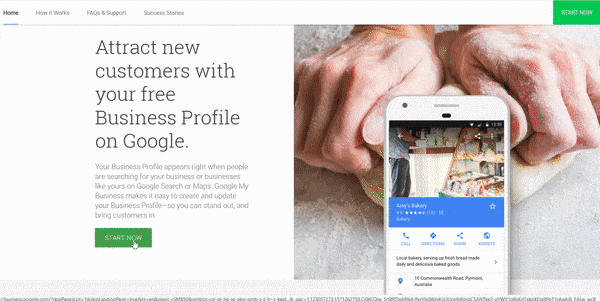
Since most clients turn to the internet to find new plumbing businesses like yours, it is important to claim your Google Business Profile as soon as possible. This profile provides a lot of helpful information for clients at glance-including closing and opening hours, location, and your company’s telephone number. From your profile page, prospects or clients can navigate straight to your plumbing website for more specific details about your business and the services you offer.
Related: The Ultimate Guide for Google Business Profile for Plumbers
With time, clients will start to leave pleasant reviews of their experiences on Google Business Profile- something that will distinguish your plumbing company from low-rated plumbers online.
11. You Will Need to Obtain Leads After You Start a Plumbing Business
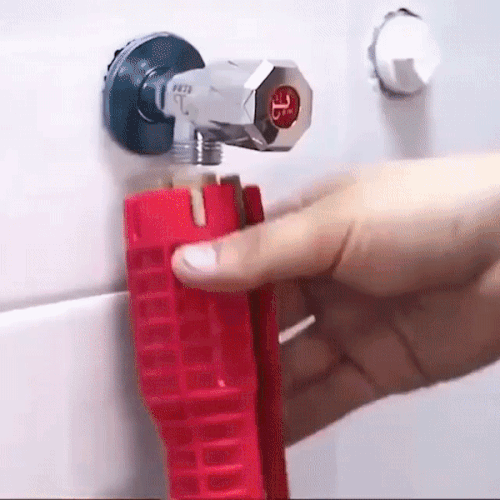
Generating leads is one of the main challenges faced by new plumbing businesses. But, obtaining high-value qualified leads is key to any new plumbing business. Here are some tips on how to generate leads for your new plumbing company.
- Invest in plumbing SEO: SEO provides a great platform to offer valuable plumbing content to your potential customers and generate leads for your business. Plumbing SEO has a lot of benefits for your company; it brings in the highest volume of leads in your service area, and it’s a long-term investment that will pay off in the long run.
- Take out PPC search Ads: Although expensive, PPC is among the most effective and fastest ways to generate leads for your plumbing business. Your ads will begin to run in less than a week if you do it properly. Plumbing PPC ads have the following advantages; they will help you get hot leads that are actively searching for a plumber in the area, and although it’s expensive, it has immediate results.
12. Focus on Scheduling Service Appointments When You First Start a Plumbing Business
After setting up your plumbing business and all the marketing strategies in place, you will begin to schedule service appointments with existing and potential customers. When scheduling an appointment, always remember the following:
Politely and Promptly Answer the Phone

Always answer your business phone call instantly since such calls are the lifeblood of any plumbing business (so treat them with utmost importance).
Gather Information
Record all the information regarding a specific project properly. Avoid errors of omission, which lead to underpricing or overpricing of a particular project.
Customer Satisfaction
Make sure that your customers are satisfied by being empathetic and helpful. Work with client’s schedules to avoid any inconveniences that may cause clients to be dissatisfied.
13. After You Start a Plumbing Business: You Need to Build Systems
With time, your plumbing business will require systems that resonate with the current technology. There are several kinds of technologies developed to help plumbing businesses complete tasks and function effectively. A properly established system helps technical or service teams, salespeople, and office staff to manage all plumbing projects easily.
14. Once You Get Started: Improve on Everything

Plumbing is a service-based industry, and the revenues can fluctuate from time to time. Factors such as weather patterns and natural calamities will significantly affect your profits. That’s why plumbing business owners require a lot of proper planning to increase their profits. Growing your plumbing business depends on new customers and ideas, which can be attained by:
- Regularly updating your plumbing website
- Improving your plumbing advertising strategies
- Improving your customer satisfaction
- Broadening your selling skills and increasing the closing rate
Final Advice and Tips About How to Start a Plumbing Business
While it takes a lot of hard work and time to start a plumbing business, it doesn’t have to be a daunting task every step of the way. Having access to the right knowledge and resources can make the process less overwhelming. Here are a few tips that will assist your new plumbing business to thrive in an increasingly competitive market landscape.
Don’t Try to Micromanage Everything On Your Own

Gone are the days when plumbers felt compelled to take on a huge share of daily responsibilities alone. As a plumbing business owner, you can make life easier by hiring administrative staff to deal with incoming calls, contact clients concerning overdue invoices, and schedule meetings with potential employees. You may also consider hiring additional plumbing technicians if you are currently struggling to keep up with work orders.
Plan to Take Time Off

Whenever possible, take some time off work for family trips or weekend vacations. Working more than 10 hours daily can make you feel exhausted quickly, so try to execute delegation as much as possible to minimize the workload. While there is still an urge to micromanage everything to keep your business operating smoothly, it is highly recommended that you rely on the support of your staff when you require it.
Always Develop Ways to Reduce Overhead Costs

Finding ways to cut unnecessary costs will help you to keep your company profitable and offer the much-needed buffer for times when there are no jobs.
If fuel expenses on your company vehicles are too high, think of investing in more efficient renewable energy sources like electric or natural gas.
Another money-saving tip is to only buy plumbing supplies as they are required instead of stocking them up in advance. Purchasing in bulk may appear like a great idea, but your space may end up getting full that you don’t have space for storing crucial equipment.
Always Reward Yourself and Your Team for a Project Well Done
After completing an important milestone or project, show your appreciation by taking your team out for dinner or giving them a gift card to a local hardware store. You can also share a portion of your yearly profits with employees, admins, and supervisors.
Giving back to people who make your plumbing business successful will motivate them to strive even harder for the prospect of getting a huge bonus next year.
Frequently Asked Questions on How to Start a Plumbing Business

How do I start a plumbing business from the ground up?
To start a successful plumbing company, you should:
- Select a name for your plumbing business
- Write a business plan
- Select your preferred business structure
- Register your plumbing business legally
- Decide on the kind of plumbing services you will provide to clients
- Hire additional plumbing technicians and other administrative staff.
- Develop a cutthroat plumbing marketing strategy
- Offer a good experience to your clients and establish loyalty
Is a plumbing business profitable?
Yes, a plumbing business is a lucrative business idea since every home or business required clean water and a functional sewerage system.
What do you require to start a plumbing business?
To start a plumbing company, you need:
- Business Registration
- Skilled plumbers and labors
- Professional with sales and marketing skills
- Plumbing materials
- Business Insurance
- Plumbing work training
How do you price plumbing jobs?
While pricing your plumbing services, you should:
- First, understand the scope of work
- Estimate labor costs and material costs
- Calculate overhead costs
- Add your preferred profit margin to the breakeven of the plumbing job
- Create and share your plumbing bid.
Are you ready to start a plumbing business?
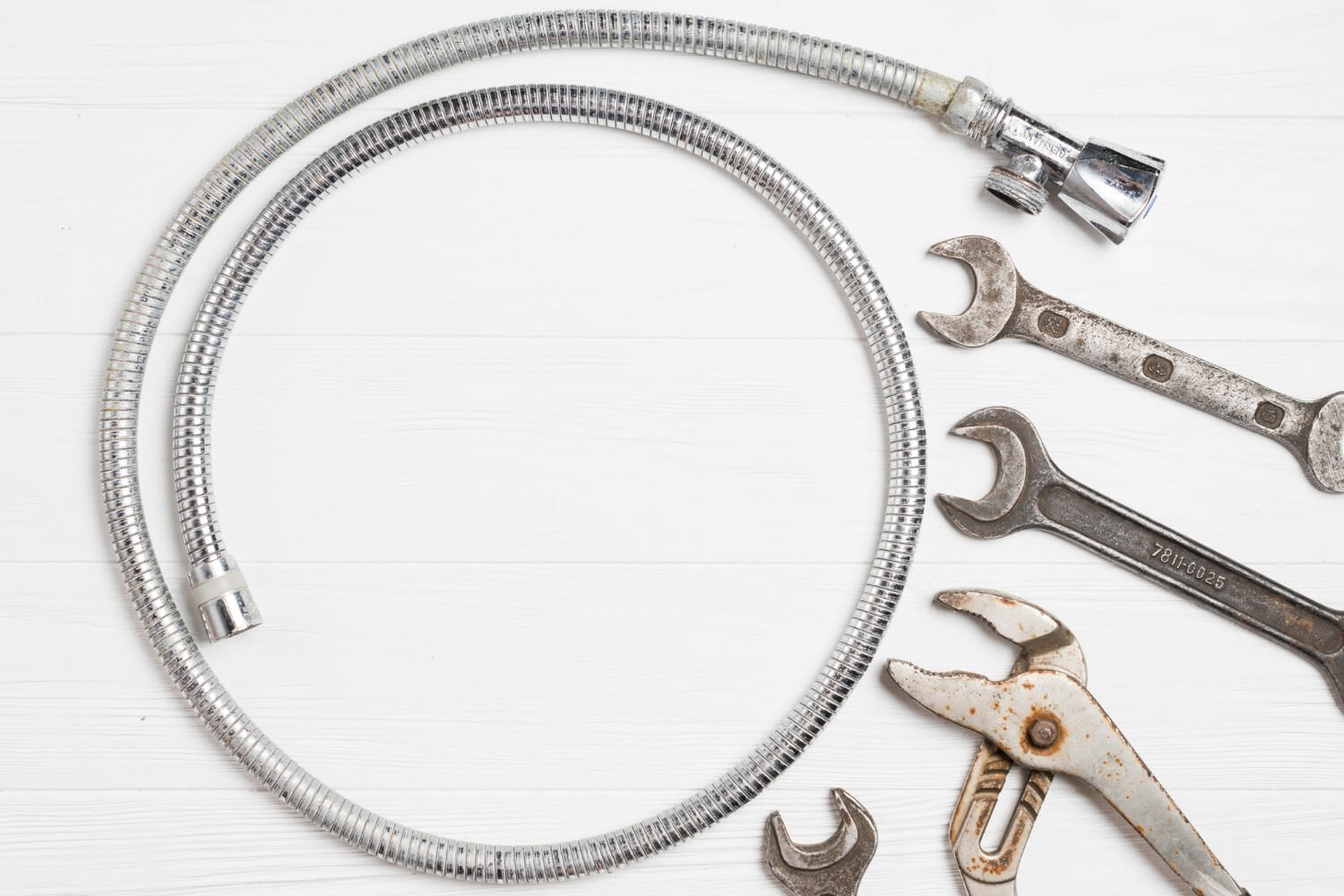
Starting a plumbing business isn’t the easiest process, but multiple generations of plumbers know how lucrative it can be. Plumbing contractors are naturally hardworking and resourceful and continue to make their companies work.
At the same time, home service contracting businesses like plumbing or roofing have the highest rate of closure in the initial first five years. So the huge challenge is beginning on a strong foundation and remaining successful.
That’s why the best advice we can offer you if you are searching for information about how to start a plumbing business is this: Don t go it all alone. Partner with people that will offer you resources and support your efforts translate into real business success.
Do you have any questions or inquiries about starting a plumbing business?
Schedule a free discovery call with Blackstorm Design + Marketing, and our experts will be happy to help you launch your plumbing marketing campaign today.
